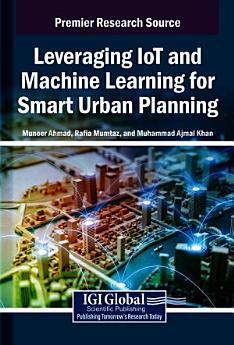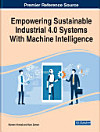Leveraging IoT and Machine Learning for Smart Urban Planning
About this ebook
Leveraging IoT and Machine Learning for Smart Urban Planning explores the integration of IoT and machine learning technologies to create smarter, more efficient, and sustainable environments. It covers theoretical foundations, practical applications, and real-world case studies across various sectors including urban planning, transportation, energy management, agriculture, healthcare, water resources, and waste management. This book covers topics such as citizen engagement, renewable energy, smart cities, and is a useful resource for policymakers, business owners, engineers, sociologists, academicians, researchers, and data scientists.
About the author
Rafia Mumtaz , a distinguished scholar, received the NUST Endowment Fund Scholarship for her MS studies (2004-2006) and a scholarship for her Ph.D. studies at the University of Surrey, UK. She is a Professor and Associate Dean of Faculty of Computing at the National University of Sciences and Technology (NUST), Islamabad, Pakistan. She has excelled in academia and research, publishing over 70 papers and earning accolades like HEC Best University Teacher Award (2022), and School Best Researcher Award (2019). Her pioneering work in precision agriculture earned her Women of Wonders Award (2021). Her leadership and IoT lab have secured grants worth Rs. 174 million and created a joint lab with Coventry University, UK with the name NUST-Coventry Internet of Things Lab, the first in NUST's and Coventry University's history. Her applied research in environmental monitoring has yielded patents and high-impact solutions. Her mentorship has guided students to international success, and she remains dedicated to advancing science and engineering.
Muhammad Ajmal Khan is a distinguished academic and professional currently serving as the Professor, Principal, and Dean at the School of Electrical Engineering and Computer Science (SEECS) at the National University of Sciences and Technology (NUST) in Islamabad, Pakistan. Dr. Khan completed his Ph.D. in Electrical Engineering from Michigan State University, USA, in 2008. He holds a Master’s degree in Electrical Engineering from NUST, Islamabad, which he obtained in 2004, and a Bachelor’s degree in Avionics Engineering from NED University of Engineering & Technology, Karachi, earned in 1991. His research interests span across micro-electronics, image processing, the Internet of Things (IoT), and machine learning. With a robust professional background, Dr. Khan has held various significant positions. Since 2021, he has been the Principal and Dean at SEECS, NUST. Prior to this, he served as the Commandant of CAE at NUST (2020-2021) and Deputy Director General of Crypto R&D in Islamabad (2019-2020). He has also been the Dean at NUST (CAE) from 2018 to 2019 and headed the Avionics Engineering Department at NUST (CAE) during 2016-2017. Additionally, he was the Director of the Crypto Research Centre in Islamabad from 2013 to 2016 and an Associate Professor at NUST (CAE) from 2009 to 2012. His career began as an Avionics Engineer, a role he fulfilled from 1992 to 2002. Dr. Khan is actively involved in several professional organizations. He is a member of the Royal Aeronautical Society in Pakistan and a Professional Engineer accredited by the Pakistan Engineering Council (PEC). His outstanding contributions to academia and engineering have been recognized through several honors and awards. [Editor]





